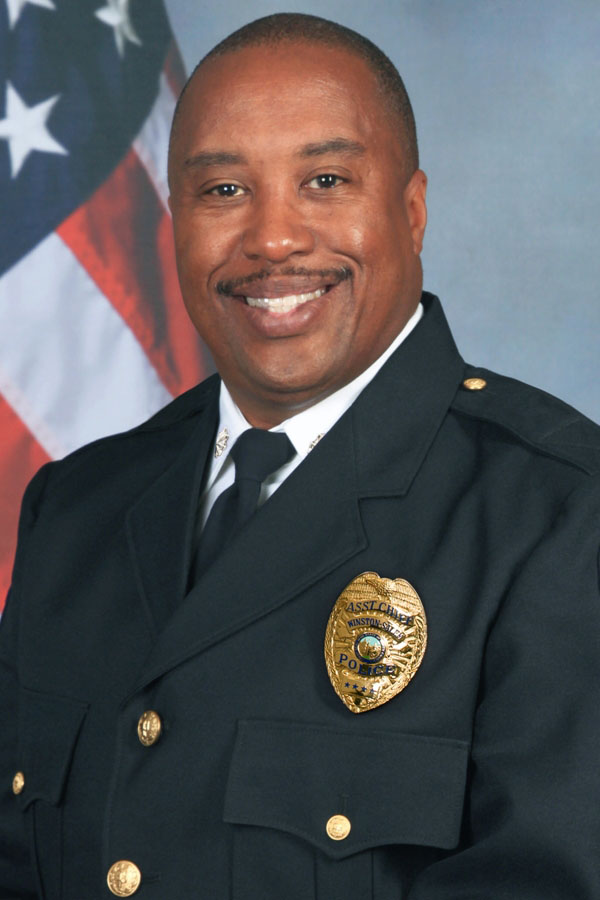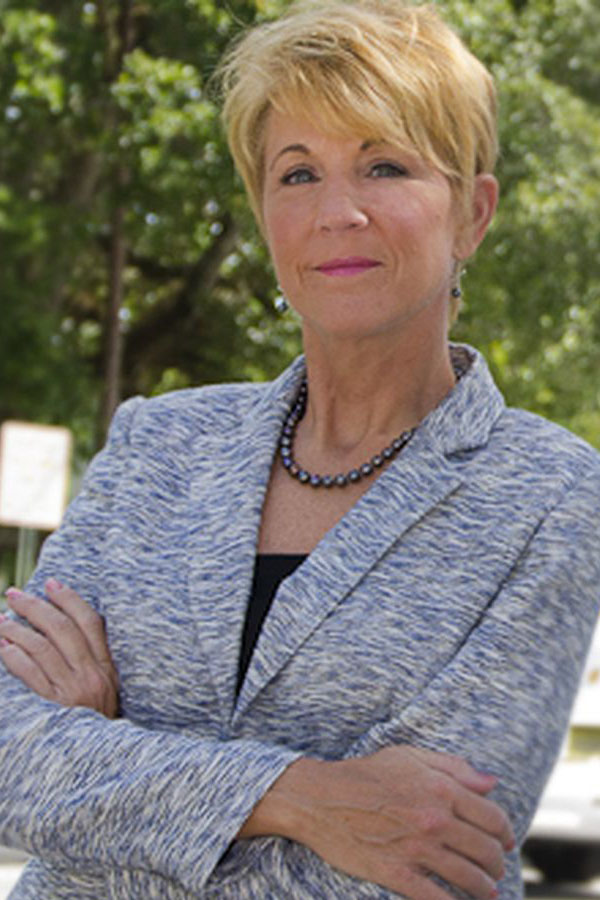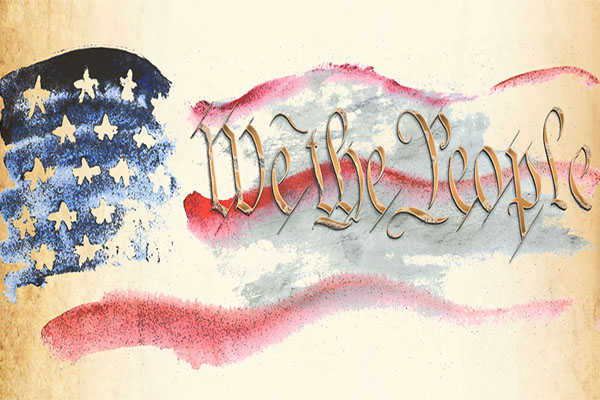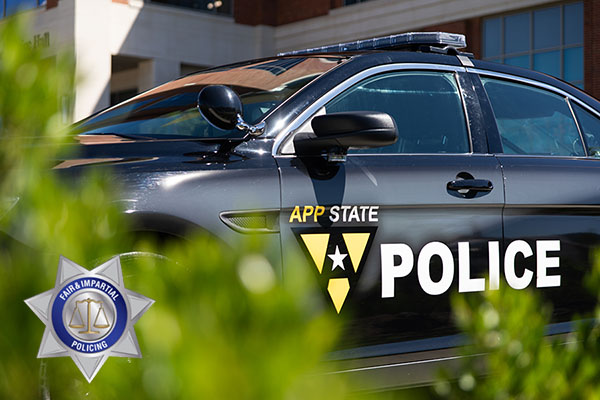The guest panelists who participated in Appalachian State University’s virtual Race and Police Forum, held Sept. 16 as part of the university’s Constitution Day 2020 programming. Pictured, from left to right, are Charlotte-Mecklenburg Police Department Chief Johnny Jennings ’90; Winston-Salem Police Department Assistant Chief Wilson Weaver ’07; and Dr. Lorie Fridell, a nationally recognized scholar on issues relating to race and policing. Photos submitted
BOONE, N.C. — Appalachian State University kicked off its 2020 Constitution Day programming with a virtual forum exploring topics related to the intersection of race and policing — a juncture that presents opportunities for policing reform, and, according to one forum panelist, for police departments across the nation to build credibility, transparency and honesty within their communities.
Participants discussed the importance of police–community relationships; steps being made to address bias and increase cultural competency in the state’s law enforcement agencies; and evidence-based policies and programs currently used by these agencies.
The Race and Policing Forum, hosted by App State’s Dr. Christopher Marier, assistant professor of criminal justice, featured three guest panelists: Charlotte-Mecklenburg Police Department Chief Johnny Jennings ’90 and Winston-Salem Police Department Assistant Chief Wilson Weaver ’07, both App State alumni, and Dr. Lorie Fridell, a nationally recognized scholar on issues relating to race and policing.
Community-oriented policing
According to Weaver, the Winston-Salem Police Department (WSPD) has been engaged in community-oriented policing since 1989 — a practice that helps build strong police–community relationships through positive interactions between police officers and citizens.
“We affirmatively go out and build relationships with members of our community, with community organizations, as well as with the businesses so that we can have positive relationships with our community in those times that are noncontentious,” Weaver said.
Jennings said the Charlotte-Mecklenburg Police Department (CMPD) prides itself on being a learning agency and that police agencies across the nation have a current opportunity to demonstrate to their communities that they are listening and moving forward.
“I think our profession as a whole has a great opportunity right now to be accepting of change — to understand that our authority and power to police come from our citizens — and the citizens should have a right in the say in how we police them,” Jennings said.
He continued, “If we want to really build credibility and transparency and honesty within our community, we have to show them and demonstrate that we are listening, and that we’re willing to make some of those tough changes to what we do, our policies and how we do them.”
Addressing biases
According to Fridell, who regularly provides implicit bias training to law enforcement agencies nationwide through her company Fair and Impartial Policing (FIP) LLC, all individuals have implicit biases.
“We link various groups of people — based on race, LGBTQ, documentation status — to stereotypes. Those stereotypes can impact our perceptions as well as our behavior. This can happen outside of conscious awareness, even in well-intentioned people who reject, at the conscious level, biases, stereotypes and prejudices,” she explained.
The Appalachian Police Department (APD) recently participated in and hosted implicit bias training for local and regional law enforcement agencies, with 15 officers from APD, the Watauga County Sheriff’s Office, the Blowing Rock Police Department and the Boone Police Department taking part in FIP’s Train-the-Trainer (TOT) program.
Officers who successfully completed the program became certified trainers capable of providing the implicit bias training to other officers in North Carolina’s High Country.
Of the FIP training, Andy Stephenson, App State’s director of public safety and chief of police, said, “Having these trainers within our local communities will support area law enforcement’s continued efforts to serve the public with compassion and respect.”
Policies, procedures for police accountability
In order to ensure police accountability, Jennings said law enforcement agencies must enforce and have in place “clear, concise rules of conduct,” as well as “clear policies and regulations that officers understand — that leave no room for interpretation.”
He said CMPD is constantly examining its policies to identify possible areas for improvement and requires accountability processes — such as spot checks and body-worn cameras — for its personnel. The department’s rules of conduct also require CMPD members to report policy violations.
According to Weaver, during Basic Law Enforcement Training (BLET), WSPD police recruits are taught that they have a duty to intervene when observing a policing situation that isn’t going well and to take action — “at least, you’re asking a question or you’re calling a supervisor,” he said.
“Our mantra, more or less, is ‘In our custody, in our care,’” he said. “We’re doing everything that we can to ensure that whether they’re our arrestees, or whether they’re people we’re just giving rides to, we’re doing everything possible to ensure their safety.”
The Race and Policing Forum, held Sept. 16 and sponsored by App State’s Department of Government and Justice Studies, was part of a weeklong series of events and educational opportunities in recognition of Constitution Day. The recorded forum — available on App State’s Constitution Day website — will be used in GJS classroom instruction.
About the forum participants
What do you think?
Share your feedback on this story.
About the Department of Government and Justice Studies
Appalachian State University’s Department of Government and Justice Studies offers undergraduate programs in political science and criminal justice, and graduate programs in political science and public administration. Housed in the College of Arts and Sciences, the department has over 600 undergraduate majors and more than 70 graduate students. Learn more at https://gjs.appstate.edu.
About the College of Arts and Sciences
The College of Arts and Sciences (CAS) at Appalachian State University is home to 17 academic departments, two centers and one residential college. These units span the humanities and the social, mathematical and natural sciences. CAS aims to develop a distinctive identity built upon our university's strengths, traditions and locations. The college’s values lie not only in service to the university and local community, but through inspiring, training, educating and sustaining the development of its students as global citizens. More than 6,800 student majors are enrolled in the college. As the college is also largely responsible for implementing App State’s general education curriculum, it is heavily involved in the education of all students at the university, including those pursuing majors in other colleges. Learn more at https://cas.appstate.edu.
About Appalachian State University
As a premier public institution, Appalachian State University prepares students to lead purposeful lives. App State is one of 17 campuses in the University of North Carolina System, with a national reputation for innovative teaching and opening access to a high-quality, cost-effective education. The university enrolls more than 21,000 students, has a low student-to-faculty ratio and offers more than 150 undergraduate and 80 graduate majors at its Boone and Hickory campuses and through App State Online. Learn more at https://www.appstate.edu.








![How NCInnovation Is Rethinking Economic Development in North Carolina [faculty featured]](/_images/_posts/2026/02/rethinking-economic-development-600x400.jpg)







